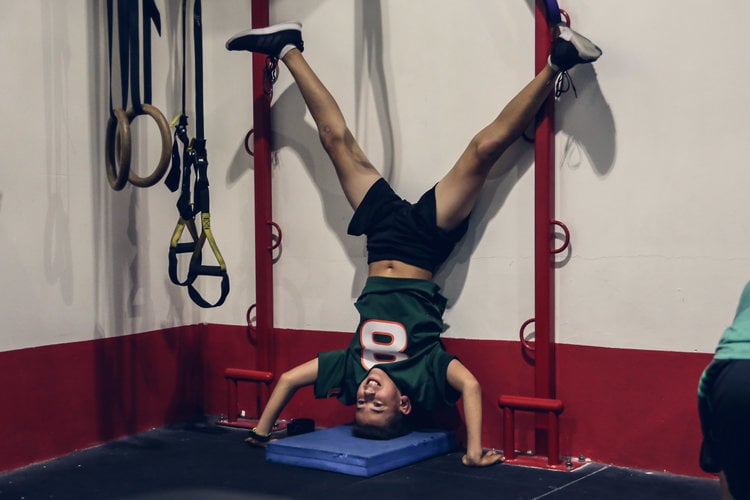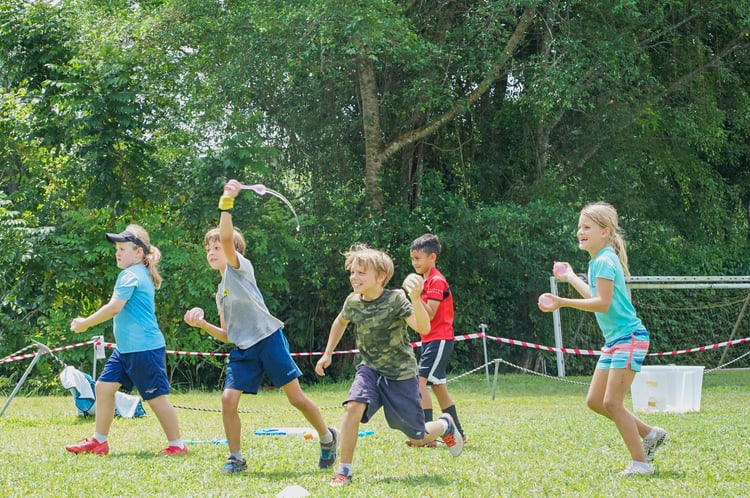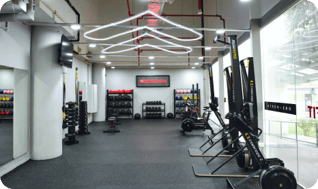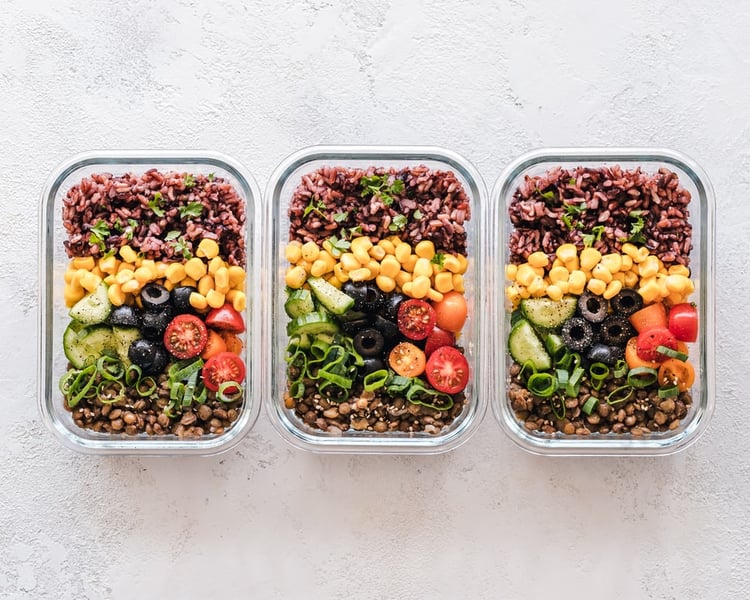With the increasing number of children and adolescents engaging in sports at a highly competitive level earlier on in life, nutrition should be an integral part of a young athlete’s training. The young athlete generally requires higher calories compared to their non-athletic peers due to their greater energy expenditure from their intense levels of physical activity.
 Having a well-balanced diet with appropriate calories and sufficient hydration potentially provides the required nutrients to help minimize injuries and prolong performance. Supplementing is often not necessary if these recommendations are adhered to. Those who follow a vegan or vegetarian diet or restrict food may find it challenging to stick with a well-balanced diet and deficiencies may develop.
Having a well-balanced diet with appropriate calories and sufficient hydration potentially provides the required nutrients to help minimize injuries and prolong performance. Supplementing is often not necessary if these recommendations are adhered to. Those who follow a vegan or vegetarian diet or restrict food may find it challenging to stick with a well-balanced diet and deficiencies may develop.
Macronutrients
Carbohydrates
This should account for at least 50-60% of the total daily caloric intake. This is an important fuel source for the body as it breaks carbs down into glucose which provides energy for the brain and muscles. As glycogen stores are limited in children, carb loading is not recommended as it may cause fatigue, irritability, and inadequate nutrient intake and does not provide any performance benefit.
Choose whole grains such as brown rice, whole-wheat, rolled oats, quinoa, milk, yogurt, variety of whole fruits and colorful vegetables
Protein
Broken down into amino acids are the building blocks for your body. It is essential for hormone and enzyme production, transferring nutrients in the blood, builds and repairs muscles, tissues and cartilages. Protein intake should be slightly higher than non-athletic peers at 1.2g-1.7g/kg of body weight per day. Protein should be satisfied through diet and supplementation is not required. Excess protein intake can increase the risk of dehydration and cause calcium loss.
Choose fresh red and white meats, fresh fish, milk, cheese, yogurt, eggs, tofu, soya beans, quinoa, legumes, lentils, nuts, and seeds
Fat
Is essential for the proper functioning of the body. It produces energy, protects vital organs, provides insulation, and facilitates absorption of fat-soluble vitamins A, D, E, and K. It helps with the synthesis of cholesterol and other hormones. Essential fatty acids can only be provided through diet and it is important for brain development, inflammation, and blood clotting. Fat intake should be 25-30% of total calories, no more than 30%, and no less than 15%.
Choose oily fish such as salmon, sardines, mackerel, nuts, seeds, olive oil, avocado
Micronutrients
Vitamins and minerals are essential for the health and functioning of the human body. It plays an important role in bone health, blood volume, hormone activity, immune system, and energy production.
Choose a well-balanced diet with variety including foods from all food groups
Hydration
For training shorter than 60 minutes less water to rehydrate is sufficient. For longer durations then choosing a flavored drink with 6% carbohydrate is recommended. Children are prone to dehydration during exercise increases the risk of fatigue. They also have a greater surface area ratio to bodyweight so they absorb more heat. Drink 10-12 cups of water daily to maintain hydration and electrolyte balance. Drink 2 cups of water 2-3 hours prior to training is beneficial. During training drink ½ to 1 cup every 20mins. For recovery, drink 2.5 cups for every ½kg lost.
Cultivate Good Eating Habits
Parents and coaches of young athletes should take an active positive role in ensuring adequate nutritional requirements are met and understanding increases in energy expenditure. Estimating energy requirements for young athletes can be challenging as they transition through childhood and adolescence. The unpredictable onset of growth spurts, preference for fat oxidation instead of glucose, and inefficiency to thermoregulate while exercising is different to adult athletes. Not having sufficient energy intake for prolonged periods can result in short stature, delayed puberty, poor bone health, menstrual irregularities or absence in females, and increased risk of injuries.
Encourage good eating habits and avoid attention to body shape and weight and instill lifelong healthy habits in the child.
If your child or adolescent is in a sport that requires low body weight or lean body shape please seek guidance from a healthcare professional as this practice can increase the risk for energy deficiency, menstrual irregularities or absence, bone health, and eating disorders.
Dietary and Sports Supplements
As with most young athletes training at competitive levels comes with experiences of significant pressure to set high-performance goals. To help them stay competitive they feel the need to turn to supplements. A study on young Canadian athletes reported an astounding 98% use of dietary supplements making it one of the highest rates of users. While it is suspected that the broad definition of dietary supplement which includes, not limited to, protein bars, sports drinks, vitamin-infused water, energy drinks, and plant extracts could explain the high rate.
Studies on young athletes reported reasons they consumed dietary supplements include:
- Health
- Increase energy levels
- Enhance performance
- Build strength
- Inadequate diet - In which they were influenced by either family/friend/teammate
 Young athletes who chose to supplement for performance-related reasons would use protein powders, amino acid supplements, creatine, sports bars, and energy drinks. While they believe there is a link between these dietary supplements and enhanced performance outcomes, it is only effective in the case of a deficiency, illness, or food restriction. There is little evidence to support these dietary supplements in optimizing sports performance in young athletes. So, do opt for supplement choices wisely!
Young athletes who chose to supplement for performance-related reasons would use protein powders, amino acid supplements, creatine, sports bars, and energy drinks. While they believe there is a link between these dietary supplements and enhanced performance outcomes, it is only effective in the case of a deficiency, illness, or food restriction. There is little evidence to support these dietary supplements in optimizing sports performance in young athletes. So, do opt for supplement choices wisely!


.png?width=301&height=187&name=Website%20Navigation%20Images%20(3).png)

-1.jpg?width=1984&height=1196&name=UFIT%20Club%20Street%20Front%20(4)-1.jpg)








